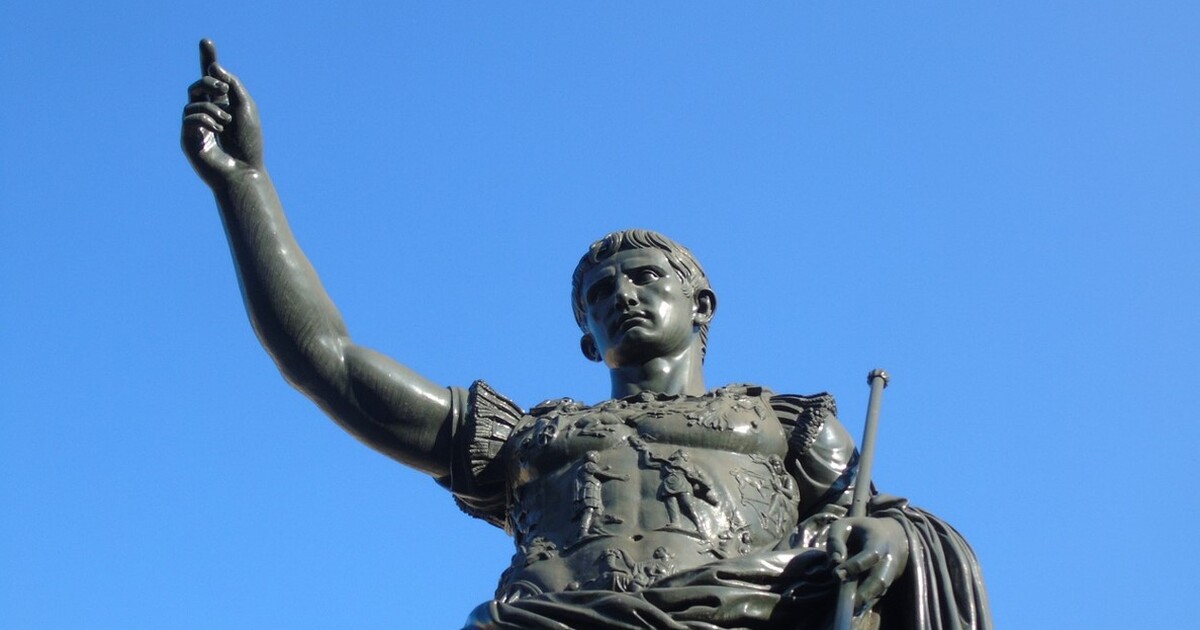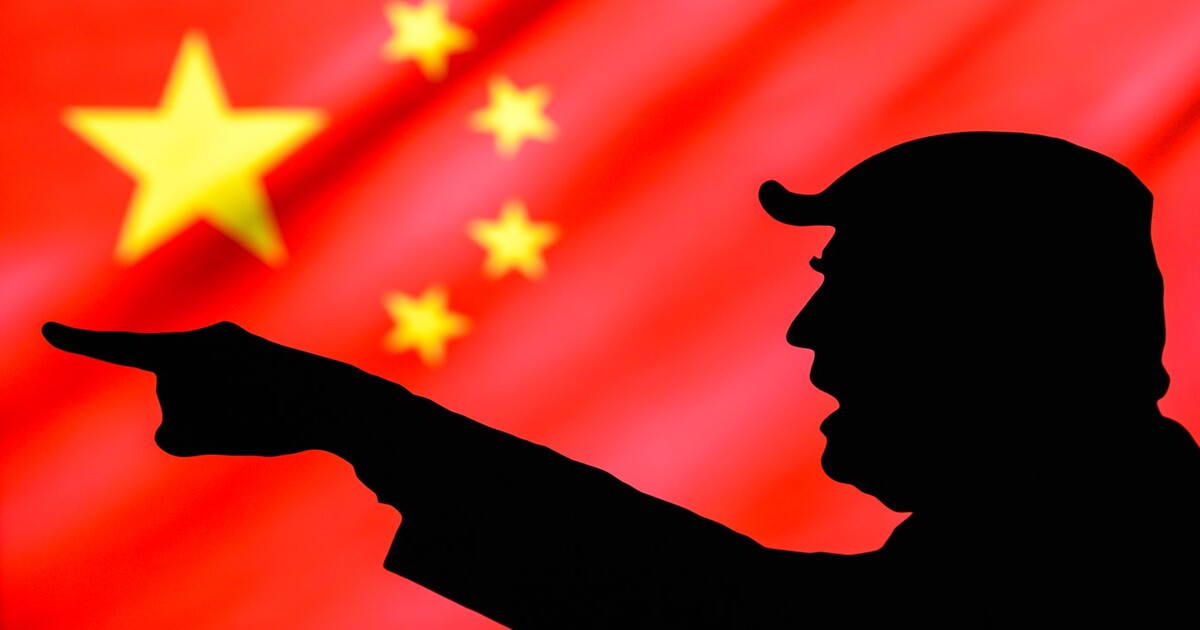Will the West Fall Like Ancient Rome?
Are the Chinese the new barbarians, intent on triggering the fall of the West? Or is China risking internal failure?
February 16, 2024

A Strategic Assessment Memo (SAM) from the Global Ideas Center
You may quote from this text, provided you mention the name of the author and reference it as a new Strategic Assessment Memo (SAM) published by the Global Ideas Center in Berlin on The Globalist.
The geopolitical dominance and future of the “West” seem threatened. Hard right-wing commentators like Steve Bannon and Nigel Farage draw parallels with the fall of ancient Rome.
In that view, a decadent and effete West, like Rome at the time, is threatened by new forces of chaos, new “barbarians,” in the form of waves of refugees and migrants, especially Muslim migrants.
Drop the race-baiting sensationalism
Such race-baiting sensationalism aside, what is true is that imperial systems like ancient Rome, though long-lasting, can foster geopolitical and geoeconomic competition for themselves.
This competition can rise either due to the way the imperial power operates – or rather fails to operate in order to fend off challenges to its status.
Alternatively, in the more benign view, this competition can come about due to the economic and political development of neighboring regions thanks to the web of global interconnections (the “rising tide” argument).
Competition can help to stay sharp
As for the Roman case of old, along the empire’s European (i.e., northern) frontiers, vast numbers of prosperous Germanic-speaking tribal units transformed into larger, more formidable confederations. This did shift the power balance between Rome and its neighbors.
In addition, Rome’s strategic position was also weakened on its Eastern frontier by the rise of Persia as a peer superpower in the third century.
“The West” – A newish phenomenon
But comparisons between ancient Rome and today’s West don’t stand, even if Western-propelled globalization has driven the rise of China and other Asian countries.
It is plain wrong to suggest that the West is an empire comparable to ancient Rome. It may appear that the West has dominated the world for some 300 years.
The reality is that the West has only been a coherent political entity since the end of the Second World War.
Over the past few centuries, several Western countries headed up their own empires, rather than being part of a Western empire. They competed among each other with other Western countries in the quest for empire.
Not unified, but often at each other’s throats
Furthermore, for much of this period, the West was at war with itself. It was only after the United States imposed peace on Germany and Japan after 1945 that meaningful Western institutions like NATO and the European Union were constructed.
Even today, Europe struggles to maintain its unity on many issues, with Brexit – and other nations like Hungary striving in that same direction – being a sad example of European disunity.
China = Barbarians?
Moreover, China (and other dynamic Asian economies) has not been the modern-day counterpart of Rome’s Barbarians. For long periods during recent centuries, China was the sick man of Asia.
The spectacular rise of China is only something which has occurred over the past few decades. And all the signs are that the Chinese miracle could be fizzling out.
Looking ahead, the Chinese economy may stay large, meaning that it will remain a political power. But the greatest threat from China may come from instability generated by internal weaknesses, rather than its great power. So, it is difficult to see China as a modern-day version of Rome’s threatening Barbarians.
Is the West weak?
Today, the West is not weak by any means. Although the West has been declining in relative terms, it is still growing in absolute terms.
And countries like India, Indonesia and Vietnam are seeking partnerships with the West in response to an assertive China.
Make the West Great Again?
The key challenge for the West is to adapt to the new reality that it no longer dominates the world. The mission ahead is definitely not, in Trump-like fashion, to try to make itself great again.
The West remains a very important player in a reordered world where non-Western economies play a more important role. They must be partners in addressing global challenges like climate change and pandemics.
The indispensable West
But the contribution of the United States and, to lesser extent Europe, to the extraordinarily complex conflicts underway in Ukraine and Gaza demonstrate that Western geopolitical leadership remains indispensable.
Perhaps the greatest challenge the West faces is reviving self-confidence and self-belief in its system of democratic capitalism which offers citizens and countries the best prospects for peace and prosperity.
Needed: Smart leadership, not vulgar populism
This requires smart leadership, not vulgar populism, to tackle seriously the many challenges we face like ageing populations, weak productivity growth, inequality and excessive public debt.
It also requires a willingness to invest more seriously in national defense, something which Japan, Australia, Germany and other Western countries are now doing.
And the West must not be perceived to have lost either the Ukraine or Gaza campaigns when they come to an end.
It will also be critical to better manage migration and promote a better understanding of the critical contribution of these “modern day Barbarians.”
In my home country, Australia, the health, aged care, technology, education, agricultural and many other sectors would collapse without immigrants – something which is also the case in other Western countries that I visit.
Conclusion
The fall of Rome, provoked by unruly Barbarians, is not in any way a meaningful analogy for a possible fall of the West, despite what some populists might say.
Takeaways
Comparisons between ancient Rome and today’s West don’t stand. Why? It is plain wrong to suggest that the West is an empire comparable to ancient Rome.
It may appear that “the West” has dominated the world for some 300 years. The reality is that the West has only been a coherent political entity since the end of the Second World War.
Let’s not forget that, throughout modern history, the West was usually at war with itself. It was only after 1945 that meaningful Western institutions like NATO and the European Union were constructed.
China as the new barbarians? The spectacular renewed rise of China is only something which has occurred over the past few decades. And all the signs are that the Chinese miracle could be fizzling out.
Although the West has been declining in relative terms, it is still growing in absolute terms. And countries like India, Indonesia and Vietnam are seeking partnerships with the West in response to an assertive China.
The West remains a very important player in a reordered world where non-Western economies play a more important role.
The West will benefit from forming new coalitions with dynamic partners outside its own region in order to address global challenges like climate change and pandemics.
Perhaps the greatest challenge the West faces is reviving self- confidence and self-belief in its system of democratic capitalism which offers citizens and countries the best prospects for peace and prosperity
A Strategic Assessment Memo (SAM) from the Global Ideas Center
You may quote from this text, provided you mention the name of the author and reference it as a new Strategic Assessment Memo (SAM) published by the Global Ideas Center in Berlin on The Globalist.


